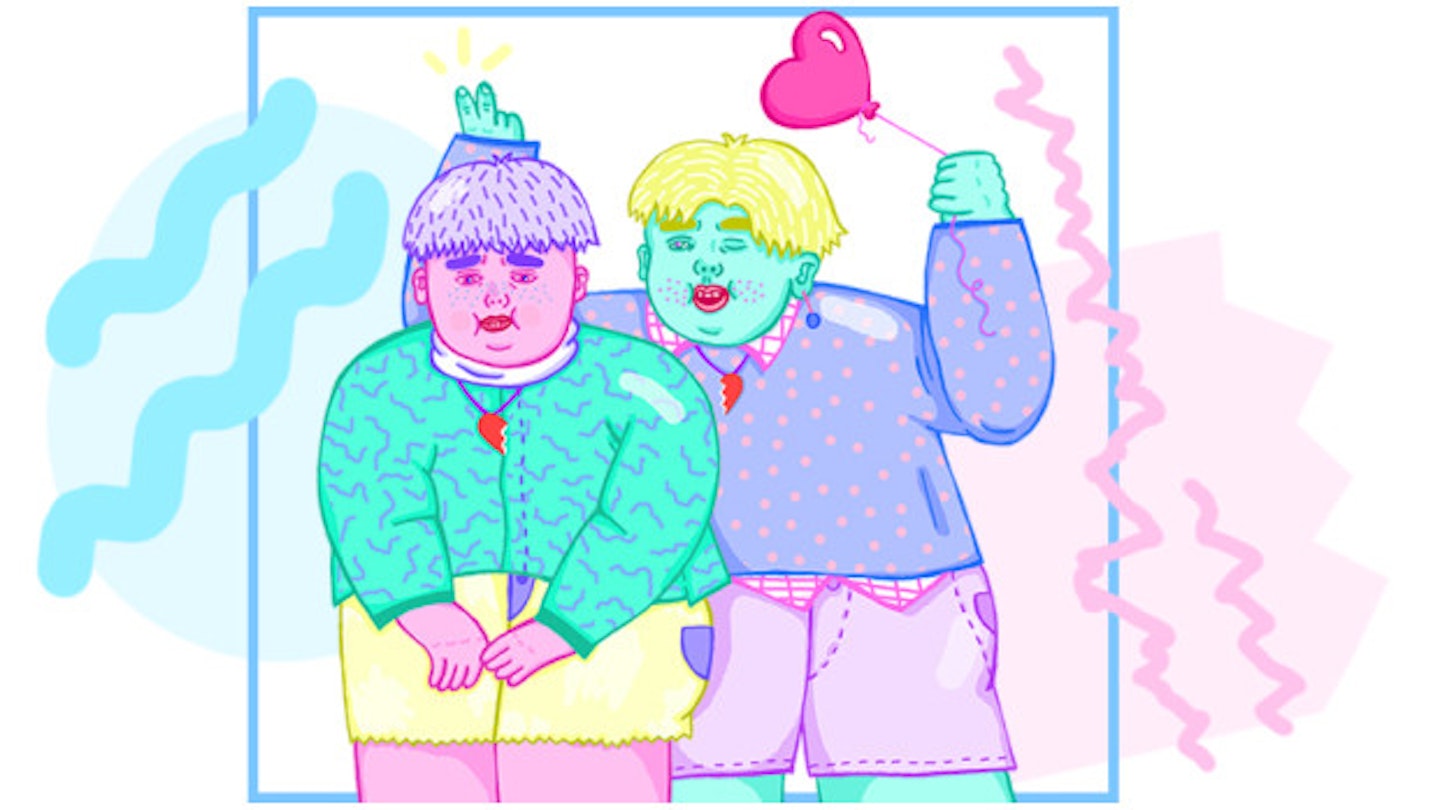It’s an age-old adage that opposites attract. But when it comes to making a relationship last how do two people that are fundamentally different make it from fancying each other down t’pub to living together and making it really, properly work?
Take introverts and extroverts for example. One likes solitude and a bit of peace and quiet most of the time, while the other likes to be out and about socialising. Yet strangely enough a lot of couples are made up of this exact personality pairing.
Really, you’d probably need a PhD in psychology to figure this all out - but I’m too old and frankly too cash-strapped to retrain. So I took the easier option and nosed into the lives of a few nice people to try and understand why introvert-extrovert relationships can be such a winning formula. From the early days of dating to being thirteen years in, here’s what three couples told me about making it work…
When you don’t know each other very well, things are easily misinterpreted
Perhaps unsurprisingly, it seems the most likely time for an extrovert-introvert relationship to fail is right at the beginning. Dating, going out and socialising are a really common way for two people to get to know each other (unless your partner-to-be is more of the Netflix and Chill type, in which case, run for the hills now). But if one of you is an extrovert who’s always jumping at the chance to be out and about and the other needs more quiet time, it seems that could instantly pose a bit of a problem.
'It took quite a while for us to become an official couple' says 28-year old extrovert Tasha, who’s been with her partner Pete for six years. 'Pete’s quite shy so he’d do things like not reply for a couple of weeks and I’d think I can’t be bothered with that but then he’d message me again.' Pete agrees it wasn’t plain sailing: 'we had some slightly awkward but enjoyable dates. Things progressed from there.'

Tasha, who thinks she’s somewhere between 80-90% extroverted, naturally took the initiative. 'I started trying to invite him to stuff” she explains. 'I was trying to get him to come to my friend’s birthday. I think it was partially a shy thing, but he also was a bit introverted and didn’t fancy going, but didn’t know how to say that.'
Luckily Tasha persevered, but as we all know when you first meet someone you’d probably put lack of communication down as lack of interest - especially if, like a lot of the couples I spoke to, the introvert isn’t obviously an introvert. Another couple I spoke to, Maggie,* 27, and Jason,*also 27, started dating when they were living together at uni but it wasn’t instantly obvious that Jason was an introvert. 'We diagnosed ourselves [as extrovert and introvert] quite a long time ago' offers Maggie. 'But while naturally Jason is an introvert, he often comes across as an extrovert because he’s quite good at…' 'Acting?' suggests Jason. 'You’re not like a shy introvert' replies Maggie. 'You just like being by yourself.'
It calls for a bit of a compromise in your social lives
And despite my lack of formal psychology training (none, see above) it seems widely understood that the clearest difference between extroverts and introverts is how they get their energy. Introverts find being around people drains their reserves, while extroverts get their energy from it. Which can easily lead to issues when it comes to socialising. 'I love entertaining, I love having people over all the time' says Maggie. 'If we have a spare weekend I will just want to fill it with having people over.' Jason, on the other hand, likes the opposite. 'My ideal day is reading in the garden, having a coffee and going on a run. I’m very happy to be by myself. But then I will get depressed after too long doing that.'
But while the introvert may need a bit of persuading to go out, and vice versa, the couples I spoke to all had examples of when they had found a really great balance. 27-year old Sarah and 28-year old Tom have been together for thirteen years, so, they’ve had a lot of time to get it right. 'The great thing about Tom is he also pulls me back to reality' suggests Sarah. 'Instead of staying out until 4 a.m, he gives me the cue and it’s always the right decision the next day!' Tom echoes this, saying: 'Ironically I organise a lot of our social plans. Sometimes after a long day I may have to drag Sarah along, but I often also find myself having to drag her away at the end of the night too!'

But actually, it’s not always about compromising
So actually, what seems like a compromise can really just be mutually beneficial over time. And according to psychology today introverts can often learn extroverted behaviours from those around them, which helps them in social situations, and this can also work the other way around, as Maggie and Jason are familiar with.
'Maggie doesn’t really think before she does certain things, so it’s good to have someone to say, wait a minute…' says Jason. 'It is true' agrees Maggie. 'I have admitted that being with Ed makes me more thoughtful about what I say. I will always run into things, very enthusiastically, and sometimes it gets me in trouble.'
Who doesn’t need someone to keep them in check sometimes? Sara and Tom attribute the success of their long relationship (which even saw them live on opposite sides of the country for a while) down to their differences. 'Tom is very balanced in his emotions and I can be very passionate' says Sarah. 'The dynamic between us means that teamwork is crucial. We have learnt that no one is ever right or wrong in a situation, it all comes down to understanding why one is feeling how they feel and how to deal with the introvert or extrovert traits.'
Whichever way you slice it with these couples, an extrovert-introvert match seems to be the dream relationship formula. Pete, in particular, sees its long term benefits: 'Tash and I both pursue our own interests and live our own lives' he says. 'That way, we always have something new to share with each other; something to talk about.
Should we grow old together, I don't think we'll be one of those couples in a restaurant sat eating in silence because they have nothing to talk about.'
*Not their real names.
Like this? Then you might also be interested in:
Single People Are Happier, Healthier And More Sociable Than You Probably Thought
Women 'Marrying Themselves' Are Still Linking Their Self Worth To Their Relationship Status
This article originally appeared on The Debrief.
